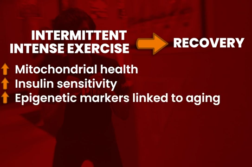ORLANDO, FL (Ivanhoe Newswire) – The act of expressing holiday gratitude is a powerful force for happiness and emotional well-being. Individuals who engage in a one-time act of mindful gratitude experience a 10% increase in feelings of happiness and a 35% reduction in depressive symptoms, as found by scientists specializing in positive psychology. However, to maintain these positive effects long term, it’s essential to incorporate gratitude into your routine.
Count Your Blessings: Set aside time each week to reflect on what you’re thankful for. Begin with 3-5 specific things, and focus on the emotions associated with each.
Write a Thank-You Note: Express your gratitude to those who have made a positive impact in your life. Whether through a letter, email, or a simple note, sincerity is key. Make it a habit to send at least one thank-you note a month.
Embrace Prayer: Embracing the uncertainty of the future can be both hopeful and daunting. Prayer serves as a way to renew your mind and attitude daily, offering solace in the unknown.
Maintain a Gratitude Journal: Document meaningful moments from your day, creating a tangible record of positivity. In times of worry, your journal will serve as a reminder that brighter days are ahead.
Incorporating these gratitude-building practices into your weekly routine can foster a healthy sense of appreciation, not just during the holidays, but throughout the year. Remember, gratitude isn’t just a mental exercise—it also positively impacts your physical health. Studies have shown that grateful individuals experience fewer aches and pains and report an overall sense of well-being.
During a time when gratitude holds great significance, let it be a practice that extends beyond the holiday season. By counting your blessings, expressing thanks, embracing prayer, and maintaining a gratitude journal, you’ll be fostering a sense of appreciation that benefits your mental and physical well-being.
https://www.happify.com/hd/5-scientific-facts-that-prove-gratitude-is-good-for-you/
https://www.health.harvard.edu/healthbeat/giving-thanks-can-make-you-happier
Contributors to this news report include: Loreen Jacques, Producer; Roque Correa, Videographer and Editor.
To receive a free weekly email on Smart Living from Ivanhoe, sign up at: https://www.ivanhoe.com/ftk/



